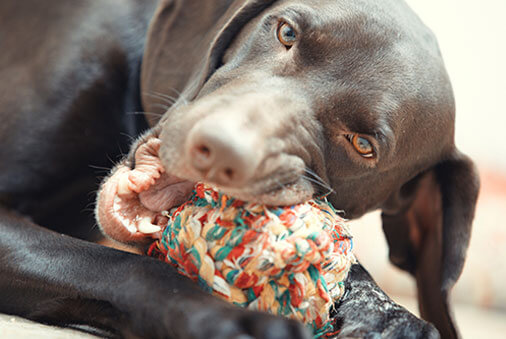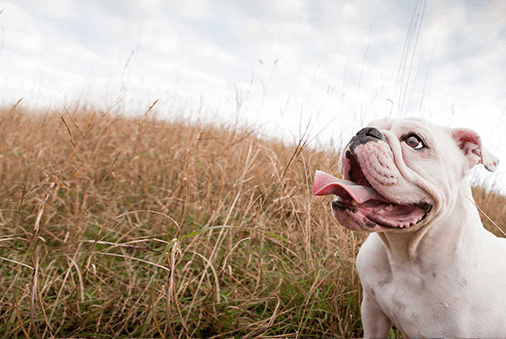Small breed puppies have a high metabolism, which helps them burn calories quickly, often in just a few hours. Consequently, they need to consume more calories per pound of body weight than large breed pups.
Small breed dogs should eat smaller, calorie-dense meals with more high-quality proteins and fats at least three or four times daily for optimal health. Otherwise they can show signs of low blood sugar: fatigue, weakness, muscle tremors, even seizures.
You can make your little guy’s food available throughout the day as a “24-hour buffet” so they can access their smaller, bite-sized meals whenever they’re hungry. Learning good eating habits from the start can help keep your puppy from over-indulging later in his life.
Of course, if your dog has other furry siblings around, you probably won’t be able to leave his food in his bowl all day. Also, leftover canned food should be refrigerated between meals.
Big or small, all dogs need a healthy balance of fatty acids that can only come from their diets. We all know fat makes human food taste better and dog food is no exception. Besides flavor, fats also give your pooch energy and help him absorb certain vitamins.
Fats also help your dog have healthy skin and a shiny coat. His diet should consist of quality fats from poultry and fish oil, as well as vegetable or soybean oils.
Once a small breed pup has reached nearly 80% of his adult size, he’ll usually stop growing. Small breeds grow faster than large breeds and reach maturity at a younger age, often before their first birthday.
Most veterinarians recommend feeding puppy food until your dog is about a year old, but ask your vet for advice pertaining to your small breed’s specific needs.





